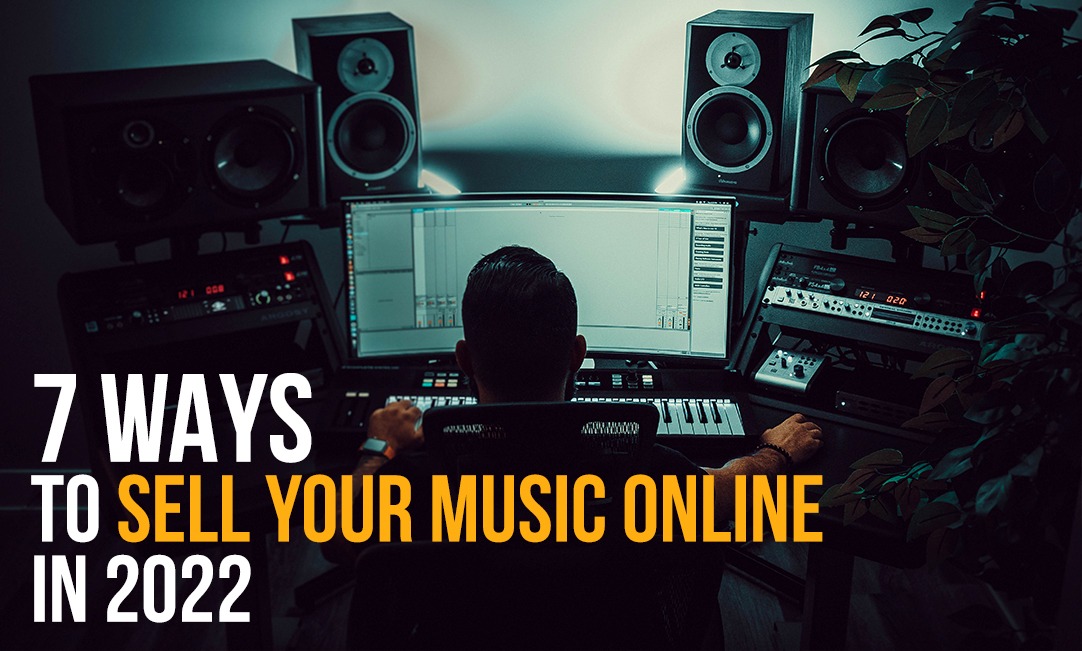7 ways to sell your music online in 2022

It's no surprise that the internet has had a positive impact on the music industry. File sharing, streaming, social media, and e-commerce are all allowing musicians to reach a broader audience and grow their fan base. The disadvantage of having so many alternatives is that deciding which methods to use to market your music online can be difficult.
It should go without saying, but your primary focus should always be on crafting amazing music. You can follow all of my advice to a tee, but if your song, ep, or album isn't well-written, instrumentally tight, and professionally produced, you'll fall short right away. Let's look at the best ways to promote your music independently in the modern music environment now that that's out of the way.
The seven ways for selling the music in 2022 is mentioned here:
1. NFTs:
"Non-fungible token" is the abbreviation for "Non-fungible token." fungible refers to something divisible and repeatable, such as money. Dollars can be divided into 100 equal cents, or the federal government can print more dollars. There's no doubt about how much a dollar is worth when you give it to someone. It has the same purchasing power as any other dollar. Cryptocurrencies, like cash, are fungible.
There are various websites dedicated to offering music NFTs that musicians can use. Some go so far as to specialize in music. Opensea.Io, on the other hand, is the largest nft marketplace for musicians.
2. Paid featuring:
First and foremost, "Featuring" is a marketing strategy used in the music industry. So you feature an artist who appeals to a different (but often overlapping) demographic in the hopes of broadening your fan base. Even if neither artist is compensated, if it is done correctly, it is a win-win situation for both.
Aside from that, it depends on how involved the featured artist is. Artists will receive license fees from every broadcast, concert, or download if they co-wrote the song. If the featured artist is only a performer, artists will often be paid per performance (plus additional fees for broadcasted performances) in the same way as a regular band player would.
3. Merchandise:
Because of the drop in record sales, music merchandising now accounts for a significant amount of a band's revenue or, as the business calls it, "Merch." as a result, it's critical for musicians to think carefully about what merch they should sell, how to design and create it, and how to market it to their fans. So join MIX Recording Studio as an artist who shows musicians how to profit from their merchandise. He discusses which items are the most profitable (and which never sell) and suggests some new product ideas, such as tour booklets, that you may not have considered.
4. Playing shows:
Playing live is not only a great way to make money, but it's also one of the most effective ways to grow an audience. In terms of how valuable they are to your music career, gig fans usually win out over social media fans since they've demonstrated they're prepared to pay money to see live music.
If you haven't yet purchased a tour bus, you'll need to find good local places to play if you want to attract a genuine live music audience. Gig-booking applications and websites like reverb nation gig finder are one way to achieve this.
5. Community membership:
Streaming and playlisting are two important features to consider. Hundreds of millions of people practice Spotify, apple music, Deezer, and other services to listen to playlists, resulting in billions of streams.
6. Selling beats:
Another frequent technique adopted by producers to generate money is by selling samples and beats as digital items. For some producers, this may potentially become their primary source of revenue. The biggest benefit of selling samples and beats is that you can spend your work hours composing music. When musicians buy beats from you, they're buying a license to utilize the beat in their work.
7. Royalties:
Streaming royalties can be earned through digital distribution. It's crucial to know the distinction between a streaming service and a distribution network in this case. A streaming service is a service that allows people to listen to music online. Spotify and Apple music are the most prevalent. When it comes to streaming services, musicians don't have an option. Even the world's most famous musicians face outrage when they remove their songs from prominent streaming sites.
Conclusion:
Dealing with your music on the internet is a long-term process that requires tolerance and care. The following are the most pivotal points to keep in mind.
-
Engage your fans from the outset of your album's creation.
-
To optimize revenue, concentrate on owned properties such as your website and email list.
-
Use a combination of services to ensure that all types of fans, from super-fans to casual listeners, can pay for your music.
It will help you develop your relationship with your fans, drive more sales, and earn money so you can create more music in the future if done correctly. Through our blogs and literature, our professional recording studio, MIX Recording Studio , not only perfect your musical composition but also assists you in learning factors linked to different ways of marketing music in 2022.